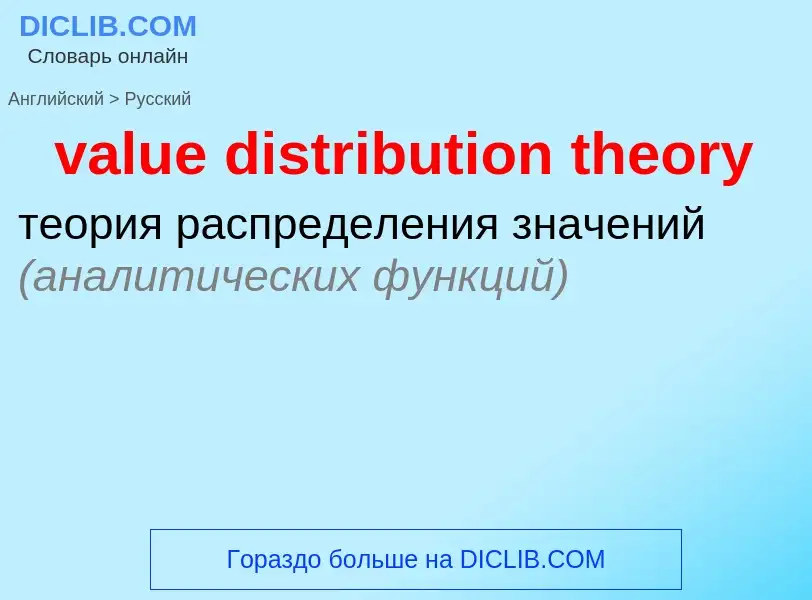Traducción y análisis de palabras por inteligencia artificial ChatGPT
En esta página puede obtener un análisis detallado de una palabra o frase, producido utilizando la mejor tecnología de inteligencia artificial hasta la fecha:
- cómo se usa la palabra
- frecuencia de uso
- se utiliza con más frecuencia en el habla oral o escrita
- opciones de traducción
- ejemplos de uso (varias frases con traducción)
- etimología
value distribution theory - traducción al ruso
общая лексика
F-распределение
Definición
.
Wikipedia
In ethics and the social sciences, value theory involves various approaches that examine how, why, and to what degree humans value things and whether the object or subject of valuing is a person, idea, object, or anything else. Within philosophy, it is also known as ethics or axiology.
Traditionally, philosophical investigations in value theory have sought to understand the concept of "the good". Today, some work in value theory has trended more towards empirical sciences, recording what people do value and attempting to understand why they value it in the context of psychology, sociology, and economics.
In ecological economics, value theory is separated into two types: donor-type value and receiver-type value. Ecological economists tend to believe that 'real wealth' needs an accrual-determined value as a measure of what things were needed to make an item or generate a service (H. T. Odum, Environmental Accounting: Emergy and environmental decision-making, 1996).
In other fields, theories posit the importance of values as an analytical independent variable (including those put forward by Max Weber, Émile Durkheim, Talcott Parsons, and Jürgen Habermas). Classical examples of sociological traditions which deny or downplay the question of values are institutionalism, historical materialism (including Marxism), behaviorism, pragmatic-oriented theories, postmodern philosophy and various Objectivist-oriented theories.
At the general level, there is a difference between moral and natural goods. Moral goods are those that have to do with the conduct of persons, usually leading to praise or blame. Natural goods, on the other hand, have to do with objects, not persons. For example, the statement "Mary is a good person" uses 'good' very differently than in the statement "That is good food".
Ethics is mainly focused on moral goods rather than natural goods, while economics has a concern in what is economically good for the society but not an individual person and is also interested in natural goods. However, both moral and natural goods are equally relevant to goodness and value theory, which is more general in scope.


